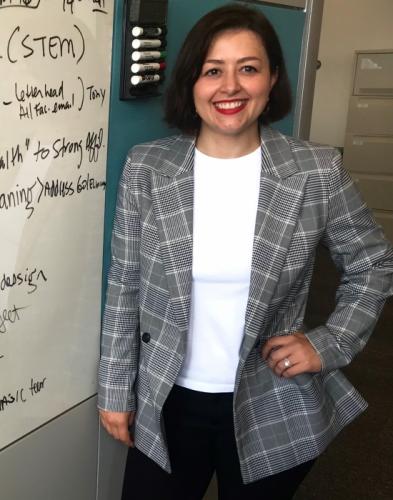
Robert Foster is the Richard L. Turner Professor of Humanities at the University of Rochester.
Robert Foster is the professor of Asian studies and history at Berea College.
Robert Foster is professor emeritus of music education and music therapy at the University of Kansas.
How does Rochester’s Professor Foster ensure his scholarly work is attributed to him, instead of the Robert Foster at Berea, or Kansas, or some other institution? For Lauren Di Monte, director of Research Initiatives for River Campus Libraries, the answer is ORCID (pronounced like the flower, orchid).
ORCID is a non-profit organization and a unique digital identifier (Open Researcher and Contributor ID) that helps researchers distinguish themselves from others.
Part of a university-wide initiative, ORCID is just one of several projects Di Monte is overseeing. She was kind enough to step away and talk to us about her department’s work.
An ORCID has to be more than just a personal identification number…
It is. ORCID has become a global standard. It allows researchers to authoritatively claim their research outputs and gives them a way to track their publications, check their data sets, their grants, and more.
But why does it matter if someone has one?
A lot of it is having control of your scholarly identity. It’s also being able to enter information in one place and have it appear everywhere, which we’re enabling by connecting ORCIDs to University systems. We are currently in the midst of an outreach effort to communicate these benefits. And then there’s building out the technical implementation—we’re involved in that too.
From the University perspective, this will help us get a better understanding of the kind of research that's happening here, and more importantly, how that research gets represented to the world. It’s getting our arms around the breadth and depth of the research and understanding where it’s happening, who’s doing it, who’s citing it, and who’s being funded. All of it gives us that leg up when it comes down to building our reputation.
You’re talking about rankings, right?
Yes. We are trying to understand what rankers are looking at specifically their data sources. We want to know how we are being represented in those data sources and the kinds of things they care about. It’s interesting because one of the key things that they look at is citations of publications.
We’re responsible for understanding bibliometric indicators. Bibliometrics is just a fancy way of saying how many citations and how many publications are being attributed to the university. Because if people are reading your work, if they’re citing your work, then there’s a quantifiable significance within the broader scholarly community.
When it comes down to metrics, what’s actually happening is not necessarily what’s being looked at. Because rankers can only measure the stuff that appears in various databases, we do a lot of work to try to make sure it aligns with what's actually happening on campus.
This sounds like ORCID territory too.
It’s a key element. A lot of work is figuring out who is the doing research, what names they publish under, what are the journals they publish in and making sure the databases are counting all the right things. These are all the fine details, but they can have a huge impact.
What about non-ORCID projects?
One of the things we’re doing is looking at our peers. All institutions have a set of peers they compare themselves to for benchmarking—at the institutional level down to individual departments. We’re looking at how that picture is painted. Who are our peers around particular kinds of research outputs? Around grantmaking?
We’ve relied heavily on our data science students to help move this work forward. The sort of training and expertise that comes out of the data science program is really helping us to understand how to leverage our findings. On several occasions, students have told me this is the most interesting project they’ve ever worked on.
What does that work look like?
Our students are so talented and really know their stuff, so we are able to give them the freedom to explore and take on leadership roles in our projects. I might have them develop a model or experiment with a new approach to data analysis. It’s great because we have so much work right now, and there's such a huge space for play and exploration. I can ask a student, ‘What do you want to do when you when you leave here?’ And when they do, they’ll have something to show prospective employers. ∎
Lauren Di Monte has been with River Campus Libraries since 2017. Want to learn more about ORCID or other topics covered in this conversation? Contact Lauren at ldimonte@library.rochester.edu. Enjoy reading about the University of Rochester Libraries? Subscribe to Tower Talk.

